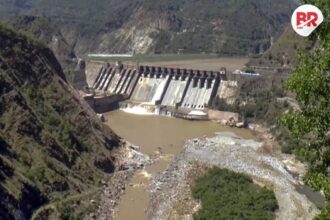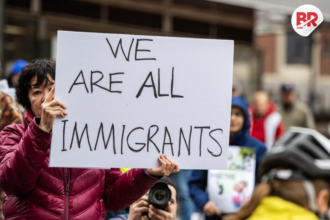
A peaceful day in Baisaran meadow, near Pahalgam in Jammu and Kashmir’s Anantnag district, turned into a horror story. On Sunday, a terror attack killed 26 people, mostly tourists, in a remote location accessible only by foot or pony. Among the victims was Bitan Adhikary, a US-based techie from Florida visiting with his wife and son. His family survived. He did not.
The Pahalgam terror attack, now claimed by The Resistance Front (a Lashkar-e-Taiba proxy), has shocked the nation and ignited global outrage.

For the Average Indian: A Vacation Spot Now a War Zone
Baisaran is known as the “Mini Switzerland” of Kashmir. Families ride ponies there. Couples take selfies. And yes—pilgrims and tourists breathe in the peace they rarely get back home. So when militants struck here, it felt like something deeper was lost: the illusion of safety in serenity.
This wasn’t just an attack on people. It was an attack on our collective idea of escape.
OP TIKKA, Baramulla
On 23 Apr 2025, approximately 2-3 UI terrorists tried to infiltrate through general area Sarjeevan at Uri Nala, Baramulla, the alert tps on LC challenged and intercepted them resulting in a firefight.
Operation is in progress.#Kashmir@adgpi… pic.twitter.com/FOTXiTNYSf
— Chinar Corps🍁 – Indian Army (@ChinarcorpsIA) April 23, 2025
Human Tragedy in the High Meadows
Rescue efforts were heroic but tough. The terrain allowed no vehicles—only ponies or choppers. That slowed emergency responses and made evacuation a nightmare.
Among the dead: Bitan Adhikary, a Kolkata-born techie working in Florida for TCS. He was on vacation with his wife and son. They lived. He didn’t. It’s the kind of tragedy that turns headlines into heartbreak.
PM Modi Acts, Cuts Saudi Visit Short
Prime Minister Narendra Modi responded immediately. He cut short his Saudi Arabia visit, chaired an emergency meeting with NSA Ajit Doval and External Affairs Minister S. Jaishankar, and promised the attackers would “pay a price.”
Home Minister Amit Shah flew to Pahalgam, coordinated with the NIA, and visited the site personally. Helpline numbers for Srinagar and Anantnag were activated, along with Tourist Department support lines.
A Shadow Group Claims Credit
Responsibility was claimed by The Resistance Front, a shadow outfit of Lashkar-e-Taiba. This group has often taken credit for high-profile attacks while keeping Pakistan’s hands looking clean.
Let’s just say: if it walks like Lashkar and shoots like Lashkar, it probably is Lashkar.
Army Responds at the Border
Hours later, the Indian Army thwarted an infiltration attempt in Baramulla along the LoC. Two militants were killed, weapons seized. Officials suspect the attack and border movement were coordinated.
Political Lines Blur in Grief
Leaders across parties expressed grief and unity.
- Congress chief Mallikarjun Kharge called for bipartisan cooperation and a decisive cross-border terror policy.
- J&K CM Omar Abdullah called it “a dark day,” offering support to victims and their families.
For once, everyone’s reading from the same script—and for good reason.
Global Condemnation: India Not Alone
Condemnations came quickly from world leaders:
- President Trump: “Horrific and unacceptable.”
- Russia’s Putin: “India has our full support.”
- UK PM Starmer: Called it “utterly devastating.”
- Italy’s Giorgia Meloni: “Barbarism must be confronted.”
Diplomatically, it’s rare to see such synchronized support. But when terrorists target tourists, even the usually quiet nations speak up.
Also Read Pahalgam Terror Attack: Terror Strikes a Peaceful Valley—Widow Recalls Husband’s Final Moments
What’s the Bigger Picture?
This wasn’t just a strike on civilians. It was a psychological ambush. An effort to tell India that nowhere is safe—not even the pony trails of paradise.
But if there’s anything predictable about terror attacks, it’s how predictably they fail to break the Indian spirit.
The Road Ahead: Justice, Not Just Outrage
Investigations are ongoing. The NIA, local police, and intelligence agencies are working together. Arrests are expected soon. The government has promised more surveillance in tourist zones and tighter border control.
But beyond bullets and briefings, India must ask hard questions—about intelligence gaps, border policies, and how to balance tourism with tight security.
In Memory and Resolve
The Pahalgam terror attack is a tragedy. But it also reminds us of what India is made of: resilience, unity, and refusal to let darkness dictate the narrative.
Also Read Saudi Kashmir Stance Shifts: India’s Diplomatic Win, Pakistan Left in the Lurch












